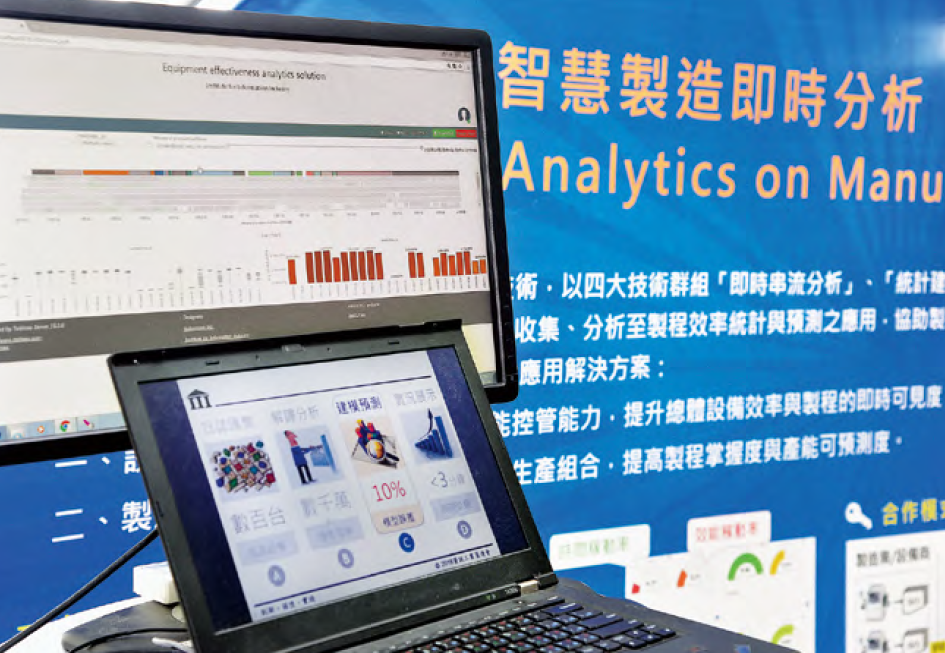
The development of Industry 4.0 has gradually formed a clear path of development. The Digital Transformation Institute (DTI) of the Institute for Information Industry (III) has developed the Process Big Data Analytics System” that provides a comprehensive view of the manufacturing process and makes it easier to achieve smart manufacturing and build smart factories.
In factories, hundreds of machines work day and night
and they create endless information and data. Without
organization and analyses, these data are simply a
set of digits with no association between them and
they generate no meaning. However, efficient data
collection through the system will become the key
factor to improving the performance of factories.
In recent years, the manufacturing industry has
continued its transformation to smart manufacturing.
However,investing in high-cost and talent and
technology-intensive smart manufacturing is not
easy for small and medium enterprises in Taiwan’s
manufacturing industry. DTI recognizes the difficulties
of the manufacturing industry and developed the
“Process Data Analytics System” with the support
of Technology Development Programs of the
Department of Industrial Technology, Ministry of
Economic Affairs. The system uses time, performance,
and quality as indicators to observe the performance
of machines and help free factories from the inefficient
manual supervision of machines and inspections to save time and strength. It allows factory operators to gain a
comprehensive understanding of the overall production performance, quality, and bottlenecks for building smart
factories and achieving smart manufacturing. The system also received recognition in the global R&D 100 Awards.
The “Process Data Analytics System” mainly uses events as drivers and distributed, fault-tolerant, and continuous
real-time streaming analyses to process material events from multiple sources. It also highlights issues rapidly with
precision for decision makers to observe the risks in the production process, control risks, and increase output.
The system is equipped with fault-tolerance capabilities, an ultra-large storage environment, and parallel
computing. It saves time in construction and satisfies practical requirements for production. It also reduces the
amount of time required for evaluation, analysis, and actual implementation during the introduction period to
reduce the technical barriers for customization.
The “Process Big Data Analytics System” has been adopted for industries such as semiconductor packaging and
tests, plastic extrusion, and battery assemblies to help operators improve production efficiency. DTI shall continue
to promote the system in the petrochemicals, textile, automobile, and the aerospace industries and build pilot
programs in collaboration with operators to attract more operators and accelerate digital transformation in
Taiwan’s manufacturing industry.
In addition, DTI also uses applied data analytics and artificial intelligence technologies to develop smart
allocation solutions for production lines. It is akin to building a digital brain in a factory to help decision makers
make accurate decisions and establish partnerships with information service operators and system integrators.
DTI uses the cloud to help operators introduce applications and extend the scope of smart solutions to handling
materials, production, and quality inspections and accelerate the development of smart and virtual factories.